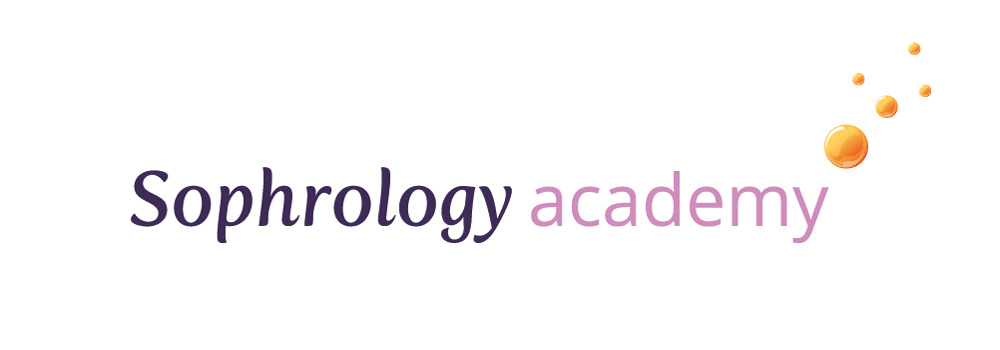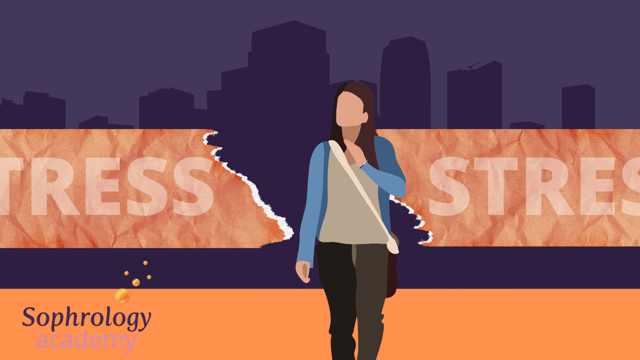Highlighting the impact of stress through such events as Stress Awareness Day does more than raise awareness of its prevalence in our society. It is an opportunity for those experiencing stress to reflect meaningfully on what they can do about it. In a report from the leading mental health charity, MIND, research suggests that 74% of people in the UK had experienced feelings of stress over the last year. And it will come as no surprise that work, closely followed by finance and health, are leading factors.
Barriers to Seeking Help
Whilst support is available, many continue to suffer in silence. This can be due to some psychological barriers to seeking help which prevent those experiencing stress from reaching out.
Cue Sophrology – a powerful, practical – and a profoundly personal method of coping with stress and many other issues, which is increasingly recognised across health, education and employment sectors. Sophrology’s reputation as an effective tool for promoting general well-being enables it to break down some of the key obstacles that many find in seeking help for stress and related issues.
So what are those obstacles? And does Sophrology help those experiencing symptoms of stress to overcome them?
Too stressed – “I don’t have the time or headspace”
One of the most common factors in failing to seek help for stress is stress. It’s hard to pay attention to our wellbeing when we are transfixed on the very problems that are making us feel ill, whether that’s work, financial pressures or health issues.
Friends and family will typically suggest therapy sessions or weekly classes as a means of addressing these issues. And there are many effective methods which can help. However, for some, committing to the time input required, or the length of process involved can be a problem in itself. For many – particularly when feeling stressed – we need techniques which will help us feel results quickly, with the freedom to use it where and when we need it.
Taking Time to Grow …
The majority of those who have reached out tentatively to Sophrology are often surprised to feel a marked improvement after the first session. Increasingly seen as the evolutionary culmination of traditional well-being methods, Sophrology combines the key benefits of yoga, mindfulness and meditation into one dynamic relaxation method. Its effects are felt in both body and mind – down to a molecular level, research suggests, where regular practice has been shown to reduce chemical markers of stress hormones (biopyrrin) in studies of cancer patients and pregnant mothers. The fact that Sophrology can have such a profound effect so quickly, and that it can be practised anywhere, opens a small but welcoming door for those who feel they don’t have the time to give towards their own recovery.
Learned Helplessness – “It’s just how it is”
Symptoms of stress can dramatically reduce a person’s sense of agency, leading to a feeling of helplessness to resolve the situation. The theory of learned helplessness, coined by Martin Seligman in 1972, suggests that when people are repeatedly subjected to stressors which they feel they cannot escape, they ‘give’ in to their fate, ignoring opportunities to escape the stressors when presented.
This sense of helplessness can be a major factor in preventing those with stress from seeking help, further complicated by ongoing stress giving rise to secondary health problems. MIND suggests that 51% of adults who feel stressed also feel depressed, and 61% say they feel anxious. Add to this, other common comorbidities such as lack of sleep, apathy, pervasive worry, headaches, IBS and musculoskeletal problems, and we see the bigger picture of how chronic stress can impact our health. Typically, the longer individuals suffer from stress, the more insurmountable the task of ‘climbing out’ will seem.
A gentle nudge in the right direction …
One of the most appealing qualities of Sophrology is its gentleness as a well-being method. With its Eastern influences, Sophrology speaks quietly to the mind, body and consciousness, bringing relief in harmony to those experiencing symptoms of stress. As the dynamic relaxation techniques provide a sense of calm (something those suffering from stress rarely gives themselves permission to feel), so the journey begins.
Gentle though it may be, Sophrology stands up to medical scrutiny, and there are a number of studies which attest to its power as a stress-reducing tool. One such study, looked deeper into Musculoskeletal Disorder (MSD) – commonly seen as a stress-related disorder. Results indicated a reduced stress-level in MSD patients who participated in a Sophrology session, compared with those in the control group. For those feeling that the task of tackling their stress is too great, Sophrology carries the strength of scrutiny and yet a simplicity which will not pull them out of their ‘comfort zone’. Little steps.
Stigma – “I don’t want anyone to know”
Stigma, of course, is a primary factor in preventing those experiencing stress from seeking help; choosing instead to mask their inner chaos with a ‘brave face’. It is not just an external issue either; internal bias can drastically impact how stressed individuals deal with day-to-day issues, seeing stress as a sign of weakness or a fault in their character.
To compound the problem, those experiencing stress often feel that they are just ‘not with it’, forgetting things frequently and feeling that they are ‘losing their grip’. This may in part, be due to sustained high cortisol levels, which reduces the brain’s function over a longer period. However, to the person experiencing this first hand without an understanding of why, it can provide a further reason to hide their stress from others.
A positive well-being method for all …
Sophrology is perceived with a positive image as a general well-being method which aims to improve life quality by focusing on the whole person. Those who attend have many different reasons for doing so, but all benefit from the techniques which bring body, mind and consciousness in harmony with each other. For those experiencing stress, there is no ‘stigma’ in seeking greater control over one’s life, which is ultimately what Sophrology does. In her book Dominique Antiglio, author of ‘The Life-Changing Power of Sophrology’ explains:
“One of the principles in Sophrology states that we can decide how we are going to experience certain events, even when we can’t change them,” Antiglio explains. “This makes us responsible for our experience and how we respond to situations.”
… and that, really is what Sophrology is all about – regaining the inner strength to live – and respond to – life, as we would choose to.
Sophrology in Practice
In our current climate of ongoing fears around employment, health and family safety, stress will continue to be an increasingly common issue in our society. And at a time when face-to-face support is difficult, it is important to educate people to be accountable for their own well-being. Tailored to suit each individual according to their needs, the intention of Sophrology is to teach the techniques to allow private practice. In this way, Sophrolology empowers, building from within and restoring the sense of self, connectedness and inner strength. ‘Learning to live’ is the way of Sophrology, and the practice of this method is a gift of living well, that all can benefit from.
The Sophrology Academy offers a range of certified programmes for health professionals and therapists who wish to train in Sophrology as a practitioner, or to expand their skill set for the continued benefit of their clients.


